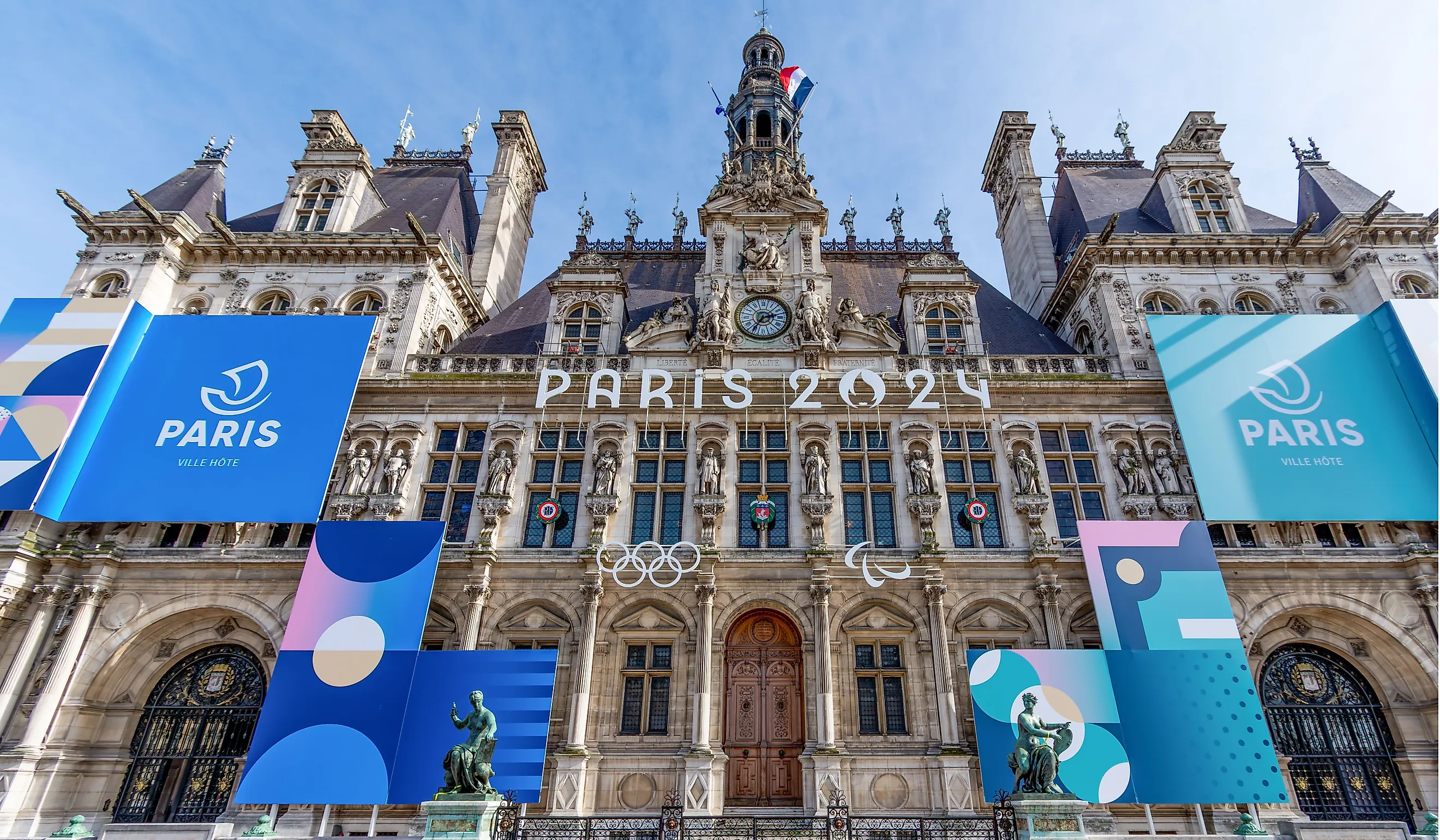
What Are The Official Languages Of The Olympics?
As sports history buffs will know, it’s only fitting that the 2024 Olympic Games are being held in Paris, France. It was here nearly 130 years ago that the idea of an international sporting event that would unite the countries of the world was turned into that symbol of international cooperation and athletic excellence that we know today as the modern Olympic Games.
French was chosen as the first official language of the games simply for convenience, as it was at the time recognized as the “unofficial” language of international diplomacy. Fast forward to today, and the 2024 Paris Olympics continues this tradition: from the welcoming of more than 10,000 athletes at the opening ceremony to the presentation of medals to the champions, French is always the first language to be heard.
But, of course, the full story is much more nuanced. Let’s find out more about the historical context and role languages play in the Games, and how they contribute to the Olympics' ultimate mission of fostering a sense of global camaraderie.
The Origins of the Modern Olympic Games
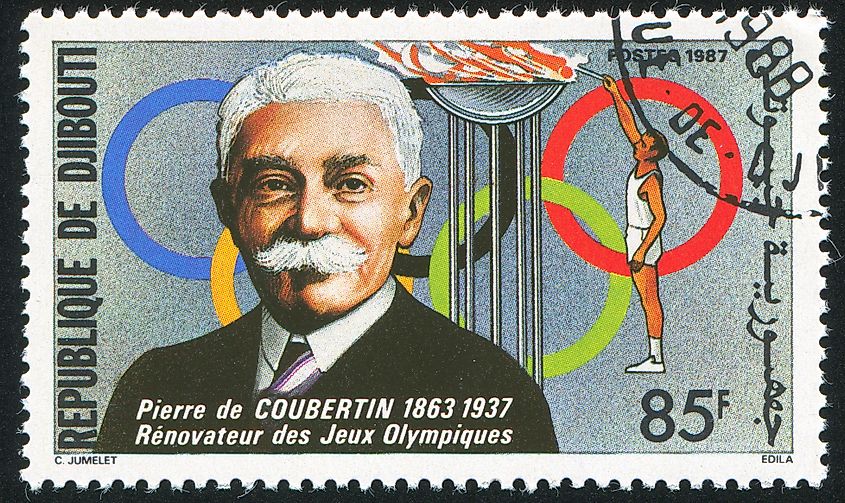
When French aristocrat Pierre de Coubertin revived the Olympic tradition in 1894, French naturally became the event’s primary language. Coubertin’s vision for the Olympics was influenced by his education, his passion for sports, and a cultural background that emphasized the importance of French as a diplomatic language. This, and the simple fact that he was located in France and had access to this powerful European nation’s movers and shakers, made it a natural choice.
Coubertin's vision was to create an event that transcended national boundaries, promoting peace and understanding through sport. This lofty goal became reality in 1894 with the establishment of the International Olympic Committee (IOC), with Coubertin's influence ensuring that French remained the primary language of the Olympics. His commitment to using French set a foundation for the linguistic policies of the IOC, reinforcing the importance of maintaining cultural and historical roots while embracing global inclusivity.
Parlez-vouz Anglais? The Addition of English
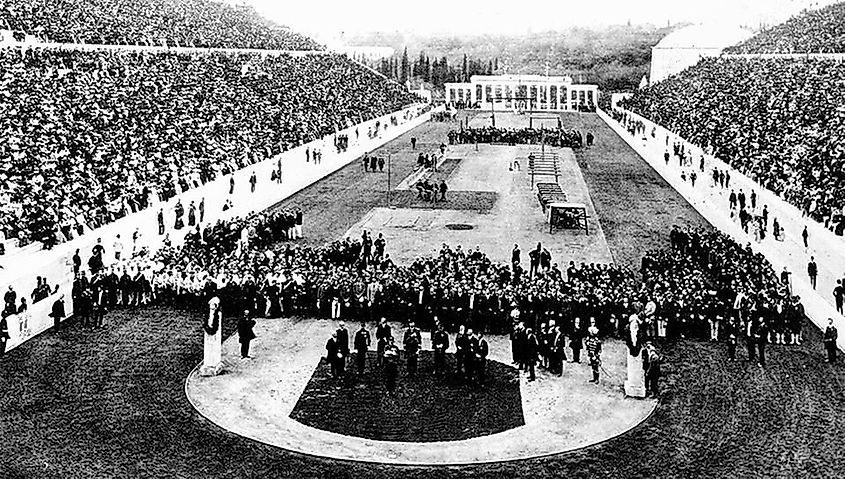
As planning for the first Games progressed and communications beyond France’s borders became necessary, English was added as a second official language. The logic behind this move was certainly sound. Not only would it accommodate the growing number of English-speaking participants and better reflect the international nature of the Games, but this bilingual approach also had many practical implications. Not only did it ensure that official documents, announcements, and ceremonies were accessible to a much broader audience, it set a precedent for inclusivity and international cooperation that continues to this day.
It was also a decision that was crucial for the smooth operation and universal appeal of the Games, enabling athletes and officials from different linguistic backgrounds and cultures to participate. By the time of the first-ever Olympic Games in 1896, held in Athens, organizers also realized a more inclusive linguistic approach would help generate the excitement necessary to ensure the event’s success and, ultimately its longevity.
The inclusion of English as a second official Olympic language was, therefore, a shrewd and strategic decision, especially due to the language’s growing global prominence in the realms of business, science, and diplomacy.
Olympic Language #3
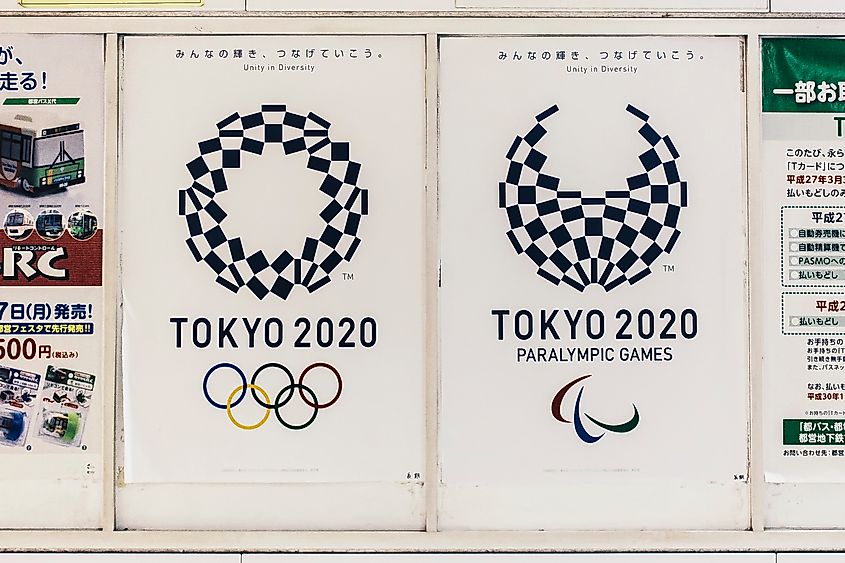
Immediately, English became the official second language of the Olympic Games, and all official documentation, including rules, guidelines, and reports, began to be published in both French and English. This bilingual approach continues to this day and guarantees that essential information is accessible to a diverse audience. During the Games, announcements are made in both languages, followed by the host country's language, ensuring all participants and spectators can understand critical information, maintaining the smooth operation of events, and fostering an inclusive atmosphere.
This important “third language” practice not only honors the host nation's culture; it ensures that local audiences and participants can also fully engage with the event. For instance, during the 2020 Tokyo Olympics, Japanese was used alongside French and English in all official announcements and signage. This trilingual approach highlights the Olympics' commitment to inclusivity and respect for the host nation's identity, making the Games more relatable and enjoyable for everyone involved.
A Matter of Interpretation
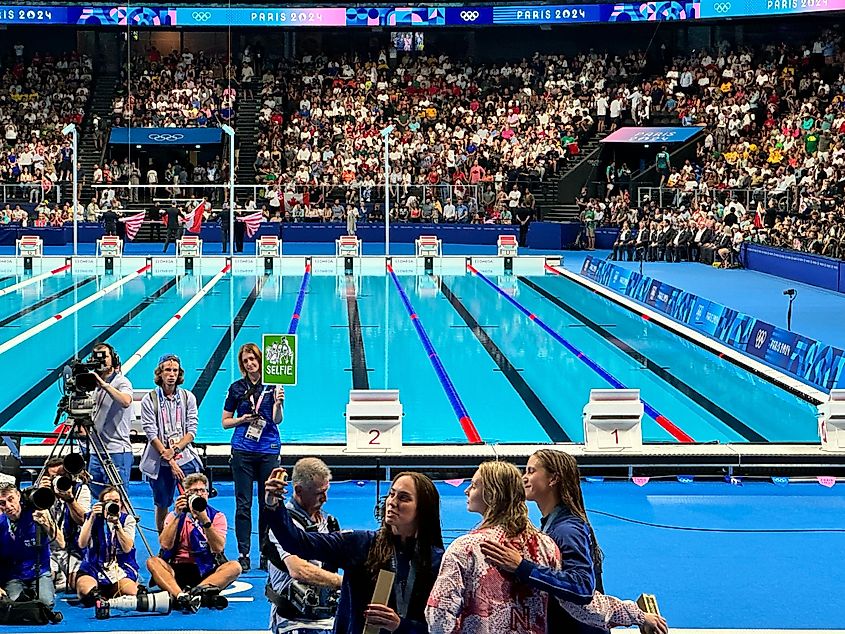
Given the event’s international stature, interpreters have come to play a crucial role in the Olympics, bridging language barriers while facilitating communication among athletes, officials, and the media. The IOC employs a team of hundreds of professional interpreters proficient in both French and English, as well as the host country's language. Working tirelessly behind the scenes, they ensure that press conferences, interviews, and official meetings are conducted seamlessly.
Their work also underscores the importance of language in maintaining the integrity and inclusivity of the Games. Not only do they ensure that everyone involved can participate fully, regardless of their native tongue, but they’re fundamental to that all-important spirit of unity and cooperation that the Olympics was created to foster.
The Olympics as Cultural Diplomacy
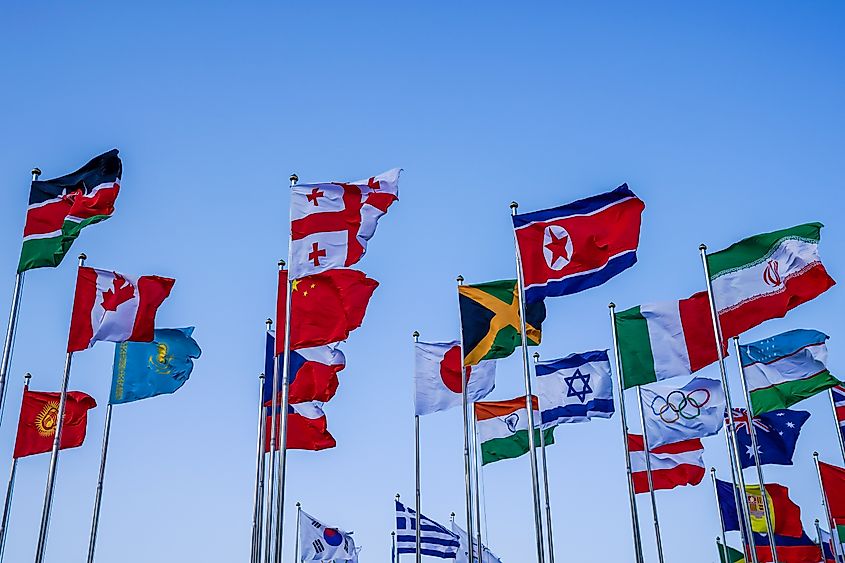
The use of French and English in the Olympics goes well beyond mere practicality. It represents a commitment to cultural diplomacy, with the Games providing a platform for countries to showcase their cultures, traditions…and languages. This not only helps promote mutual respect and understanding among the international Olympic community, but it also ensures that the Games remain a truly global experience that is accessible and meaningful to people from all walks of life.
Holding the Olympics also brings numerous other positive impacts to the host country, both economically and socially. The influx of visitors from around the world boosts local tourism, leading to increased revenue for hotels, restaurants, and other businesses, while infrastructure developments, such as improved transportation systems, sports facilities, and urban revitalization projects, leave a lasting legacy that benefits the local population long after the Games have ended.
The global spotlight and the world’s attention on the host country also enhance its international reputation, leading to future investment and tourism. The Olympics also foster a sense of national pride and unity as citizens come together to celebrate their country's achievements on the world stage, fostering a collective spirit that can inspire future generations to engage in sports and adopt healthier lifestyles.
Checks and Balances
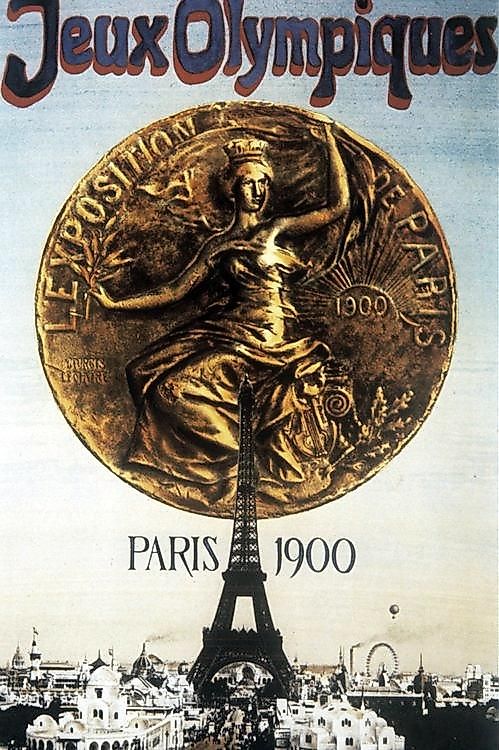
Olympic poster. Affiche Jeux Olympiques Paris 1900. In Wikipedia. By Unknown author, Public Domain, Wikipedia
Despite the efforts to maintain a linguistic balance, the use of multiple languages at the Olympics has not been without challenges… and the occasional controversy. The dominance of English in global communication has sometimes overshadowed French, leading to concerns about the marginalization of the latter. The IOC has addressed these concerns by reinforcing the importance of French in official communications to ensure it remains a vital part of the Olympic tradition.
Additionally, the logistics of providing accurate and timely translations in three languages can be complex, requiring meticulous planning and coordination. But when it works (which it usually does), the IOC's commitment to linguistic diversity and inclusivity definitely underscores the value placed on effective communication in the Olympic movement.
The official languages of the Olympics, French, and English - plus the use of the home country’s language - are more than just tools for communication. They’re symbols of the Games' rich history and commitment to international unity. Rooted in the vision of Frenchman Pierre de Coubertin, the use of multiple languages has played a crucial role in making the Olympics a truly global event. By embracing linguistic diversity and honoring the traditions of the host nations, the Olympics continue to promote inclusivity and mutual understanding…something that’s also crucial to the success of the 2024 Paris Olympics.











